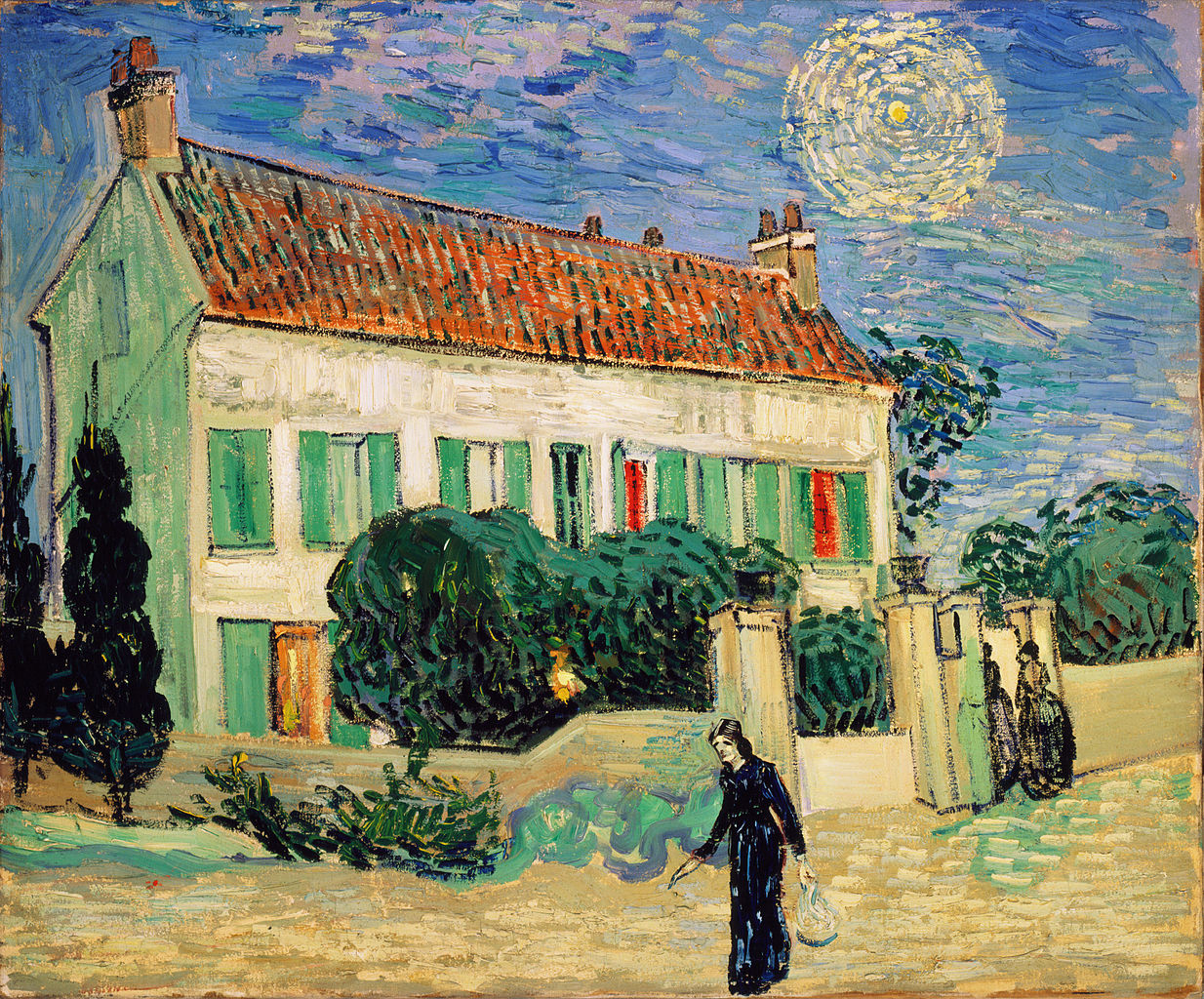 |
| Maison blanche, la nuit (White House at Night) Vincent van Gogh (1853 - 1890) [Public domain] via Wikimedia Commons |
Factual Summary
On July 26, 2012, nj.com reported the New Jersey Supreme Court had suppressed evidence in State v. Shareef Edmonds. Upholding the lower courts, the Supreme Court majority determined the police broke the law when they searched a residence without a warrant and found a weapon.
A 911 call brought police to Kamilah Richardson's Carteret residence, according to the Court's opinion. Allegedly Richardson's brother, the caller said Richardson was a domestic violence victim. The caller also reported a gun in the residence.
After an exchange with Richardson outside her apartment, police entered despite Richardson's disapproval. Police found Shareef Edmonds watching television while seated on a couch, and Richardson's son. But they observed nothing to indicate imminent threat or ongoing danger. Subsequently, the police searched the premises and found a handgun.
Legal Framework Summary
Under the law, the government must pay the greatest degree of respect to an individual's privacy in the home.Indeed, the New Jersey Constitution and the Fourth Amendment plainly state, "The right of the people to be secure in their . . . houses
. . . against unreasonable searches and seizures, shall not be violated."
Therefore, the fruit of a warrantless search must be suppressed unless the facts fall within an exception.
Emergency Aid Exception
The Emergency Aid Exception allows warrantless activity in private homes to preserve life or prevent serious injury. Based on common sense, New Jersey courts apply the following factors:First, the circumstances must provide an objectively reasonable basis about an emergency requiring immediate assistance to protect life or prevent serious injury; and
Second, there must be a reasonable nexus between the emergency and the area or places to searched.
Note: The Court aligned New Jersey and Federal law here, discarding the factor relating to the officer's subjective motivations. This development lightens the State's burden.
Community Caretaker Exception
Separate and apart from law enforcement, police provide social services. Similar to the Emergency Aid Doctrine, police usually provide these caretaking services in emergency situations. Furthermore, this exception applies only in circumstances that are completely removed from the investigation of criminal activity. Importantly, this exception does not provide carte blanche authority to search homes without a warrant.Experienced New Jersey Criminal Defense Lawyer Michael Smolensky, Esquire, knows how to protect his clients. Mr. Smolensky can provide consultations on all cases regarding searches, seizures, and arrests. Call Now—(856) 812-0321.